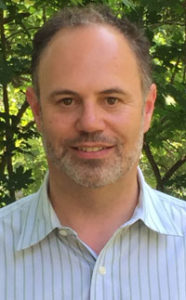Dear colleagues,
In spite of all the limitations that the pandemic continues imposing on us individually and collectively, IARPP’s committees, chapters and members continue delving into workshops, webinars, study groups, presentations and event planning.
We continue discovering what it means to work remotely – thinking creatively, questioning received wisdom, seeking solace and strength in connection and community. Analysts and therapists in many countries new to IARPP are becoming curious about relational thinking. Individuals and communities in China, Columbia, Croatia, Finland, Hungary, Iran, Republic of Korea, Romania, Russia, Singapore and Taiwan are lately discovering key tenets, forming study groups, and investigating central texts of the relational turn. (See Tony Bass’ Membership Committee report for an overview). We are sustaining ourselves as best we can, but there is fatigue as well – and perhaps, though less spoken of among us, despair. We need each other. We need our patients, our colleagues, our work, our organization.
On a personal note, I have been taking pleasure in emailing with so many colleagues around the world, as well as those closer to home (the internet as great geographic equalizer), whether in pursuit of putting together this newsletter or in the open-ended, ever-emergent, maddening/gladdening process of becoming, otherwise known as the IARPP Collective. The Collective’s cycles of generativity and stasis, its lurching forays into figuring out what it means to be an individual in concentric and interlacing circles of collectivity, echo and enact so much of what it is to be human during this time – the striving, the yearning, the hurt and wonder, connection and fracturing, retreat and reengagement. In this prismatic, essentially self-directed space, we seek to come to grips, and occasionally gripes, with the kaleidoscopic multiplicity of perspectives, to borrow from Jody Davies, that spiral onward and back. This has been another important touchstone in recent months.
We have transitioned in leadership. While Steven Kuchuck gifted us with his “swan song,” the remote Symposium he organized at the top of January, our once and future leader, Susanna (Susi) Federici assumed the IARPP presidency. Susi and the Board have been working to maintain IARPP’s continuity and vitality on a number of fronts, a chief concern being finding ways to maintain and enrich our connectivity during this second year of the pandemic. (Writing that phrase — “this second year of the pandemic” – caused me to exhale quite forcibly just now.) This Bulletin features Susi’s first letter to membership. With you, I look forward to the unfolding of her tenure, with appreciation for her deep organizational knowledge, her vision for future directions, and her dedication to all the tasks at hand.
One area that we as an organization have been grappling with – a topic that Steve Kuchuck discussed in his final Bulletin remarks, and one that Susi is alert to as well – is the extent to which we might find ways to unsettle English as the de facto language of IARPP. To be sure, English has long predominated in international endeavors of all types, approaching the status of a universal language. Unsurprisingly, it is the biggest overlapping region of IARPP’s linguistic Venn Diagram as well. Yet as an international organization, we do well, and can do more, to reach non-English speakers and to better recognize those who think, feel, work and dream in their own, non-English tongues. To borrow from Robin DiAngelo’s work, we English speakers (and writers) might contemplate what could be thought of as our “English fragility.” Reworking Michael Eric Dyson’s turn of phrase from his foreword to DiAngelo’s White Fragility (2018), English, like whiteness, “is the unchanging variable,” “a highly adaptable and fluid force that stays on top no matter where it lands” (p. ix). How can we decenter it?
IARPP has begun offering translations of colloquium papers in several languages, and English is no longer the only language in which webinars are conducted (see this month’s Webinar report).
You may have noticed that recent editions of the Bulletin include committee and chapter reports in their writers’ native languages. This doesn’t hit every demographic within the organization, of course, but it feels like a start. I acknowledge the irony that this letter is presented in English only. Like too many Americans, I’m sadly monolinguistic, a smattering of Spanish and Hebrew notwithstanding, and I’m shying away from asking linguistically gifted colleagues to take on the added labor of translating my 800+ words on short notice. (Even Marie Saba has her limits!) Something on which to think further.
I invite you to submit news of recent or upcoming publications and presentations (in English and in your country’s non-English language) for the next Bookshelf, to be published in June 2021. The deadline for submission is Sunday, May 23, 2021.
Please include the following materials with your submission:
- Title of your recent or upcoming publication or presentation
- An abstract or brief description of its content
- Link to a publisher (if applicable) so that members might access or purchase a copy
- Book cover photo or artwork (if applicable)
- Digital photograph of yourself (jpeg format)
- Professional contact information as you would like it to appear publicly for our readers (email and, if you wish, mailing address)
- Book authors: please provide a brief bio of about 75 words.
- Presenters: kindly spell out organizations’ acronyms.
Submissions should be emailed to Matt.Aibel [@] gmail.com.
With best wishes to you all,
Matt Aibel
Northport and New York, NY


